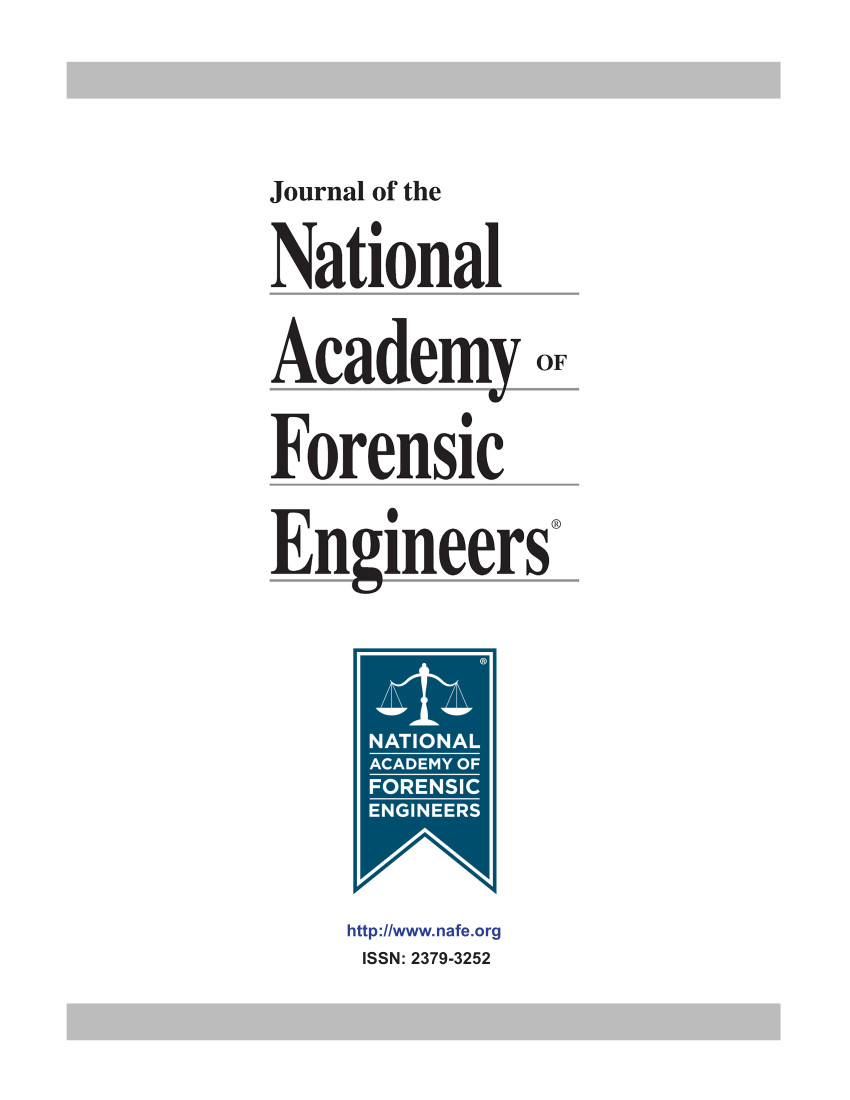Forensic Engineering Assessment Of Fast And Fastlite Fire Modeling Software
DOI:
https://doi.org/10.51501/jotnafe.v17i2.577Keywords:
Accident reconstructionAbstract
Mathematical Equations That Relate To Fire Phenomena Have Been Around For A Long Time. In 1984, Bukowski Proposed A Series Of Individual Calculations For Conducting A Fire Hazard Analysis. A Broader Series Of Equations, Applicable To Fire Growth Estimates, Was Published In 1985 By Lawson And Quintierez. Nelson Extended This Idea Further In 1986 With Fireform And Fpetool To Give Simple Models Along With Engineering Calculations In A Software Package That Was Widely Used For Fire Safety Engineering Calculations. More Recently, The National Institute For Standards And Technology (Nist) Released Fast And Fastlite. These Software Programs Are A Collection Of Procedures That Builds On The Core Routines Of Fireform And A Simplified Version Of The Computer Model Cfast To Provide Engineering Calculations Of Fire Phenomena. Fast, Which Stands For Fire Growth And Smoke Transport, Is Designed To Provide Quantitative Estimates Of Some Likely Consequences Of Fire, Such As Room Temperatures, Ceiling Layer Height, And Time To Flashover. This Paper Will Describe The Historical Use Of Fire Modeling Software In A Forensic Engineering Context, Review Current Fire Modeling Software Programs Available From Nist, And Present The Results Of An Applied Research Project That Modeled Actual Building Fires Using Fast. Finally, The Paper Will Show The Results Of A Fire Modeling Software Usage Survey Of Nafe Members Who Specialize In Fire And Explosion Investigations.Published
2000-01-01
How to Cite
DeWitt, William E. 2000. “Forensic Engineering Assessment Of Fast And Fastlite Fire Modeling Software”. Journal of the National Academy of Forensic Engineers 17 (2). https://doi.org/10.51501/jotnafe.v17i2.577.
Issue
Section
Articles
License
Copyright (c) 2000 National Academy of Forensic Engineers

This work is licensed under a Creative Commons Attribution-NoDerivatives 4.0 International License.
All rights © Journal of the National Academy of Forensic Engineers.
Full statement regarding the author's license of copyright to the NAFE is shown on the Copyright section of the Submissions Page.






